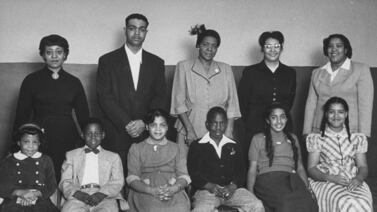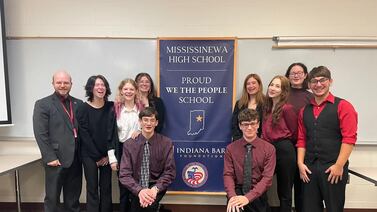A Denver tax initiative meant to support college scholarships needs more oversight to better track its data and increase safeguards to hedge against inaccurate reporting, according to a city audit released this week.
The nonprofit Prosperity Denver Fund administers the city’s College Affordability Fund created after a 2018 ballot initiative. It began reimbursing local nonprofits for the scholarships and college support services they provide. The voter-approved college fund sets aside .08% sales tax to increase higher education resources for Denver students, especially those who are low-income.
The audit says the Prosperity Denver Fund has struggled to keep accurate and complete records of students, had some issues verifying if students were eligible for scholarships, and lacked appropriate documentation to support reimbursements to nonprofits.
The nonprofit and the Denver Office of Children’s Affairs, which oversees the nonprofit’s work, have agreed with city auditors’ recommendations. Prosperity Denver CEO Matt Jordan said changes, including improving its data management and collection, are either underway or are planned.
“In data collection and management, those steps took longer than we would have wanted initially,” Jordan said. “But we’re confident now that we have what we need to more quickly address these issues.”
The program has already undergone other changes since its start in 2018.
Tax money available for the fund has increased from $8.9 million in 2019 to $14.5 million in 2022. So far, the fund has collected about $46.4 million, but only spent about $21 million to reimburse nonprofits for over 7,500 scholarships.
The pandemic made it hard to give out all the money within the fund, Jordan said.
In May, Denver city council members approved broadening the criteria for students. The nonprofit can now reimburse scholarships or services such as college or career counseling, for students up to age 30, and for students who have graduated from a Denver high school or lived in Denver for six months prior to graduation.
“We think that the ordinance changes that were recently approved will allow us to serve more students that were originally intended to be covered by the fund,” Jordan said.
The audit says that Prosperity Fund Denver didn’t create identifying information for individual students. While the fund reimburses about 1,800 scholarships a year, Jordan said, some of those students might get college money for multiple years.
The organization lacked some information that included residency, financial need, academic progress, gender, and ethnicity. Prosperity Denver said it followed up with nonprofits to confirm any missing details.
The nonprofit also ran into issues confirming nonprofits could be reimbursed for student scholarships, according to the audit.
Of the 7,570 scholarships city auditors reviewed, about 155 payments lacked the data needed to determine if the student was eligible.
Jordan said issues stem from nonprofit groups never having recorded some of the data that the fund requires. The updated eligibility requirements should help with this issue, he said.
The audit says for ineligible students, Prosperity Denver and the city should seek refunds. Jordan said that work is already underway.
The fund should also create clear documents for nonprofits to use that help track reimbursements, the audit says.
“Prosperity Denver has no comprehensive database of its reimbursements for scholarships and related support services that would help it manage the program and better ensure data integrity and transparency to Denver residents,” the audit says.
For its part, the city plans to add a staff member assigned to better oversee the fund and help with issues, including with the management of data.
Jason Gonzales is a reporter covering higher education and the Colorado legislature. Chalkbeat Colorado partners with Open Campus on higher education coverage. Contact Jason at jgonzales@chalkbeat.org.








